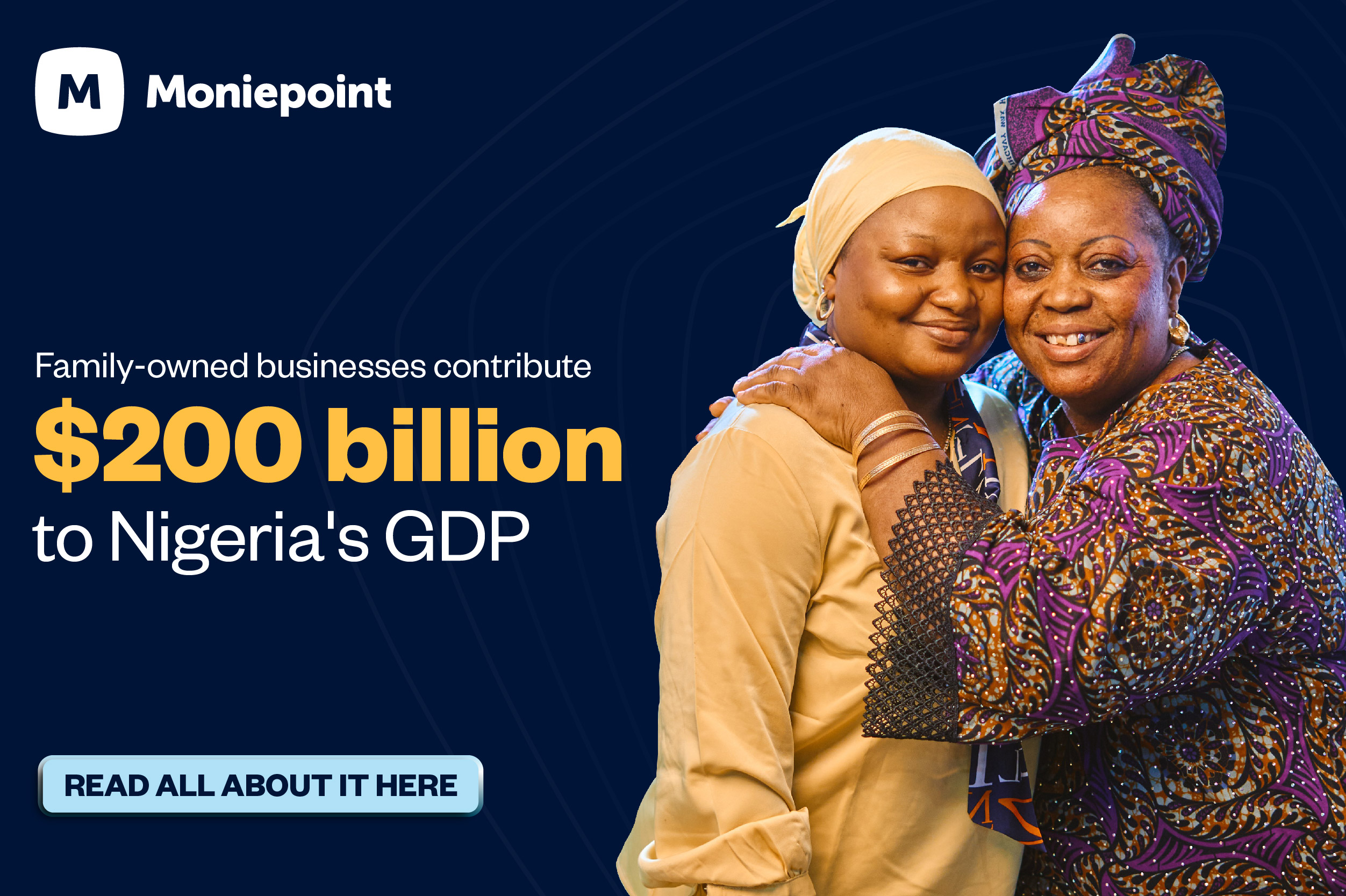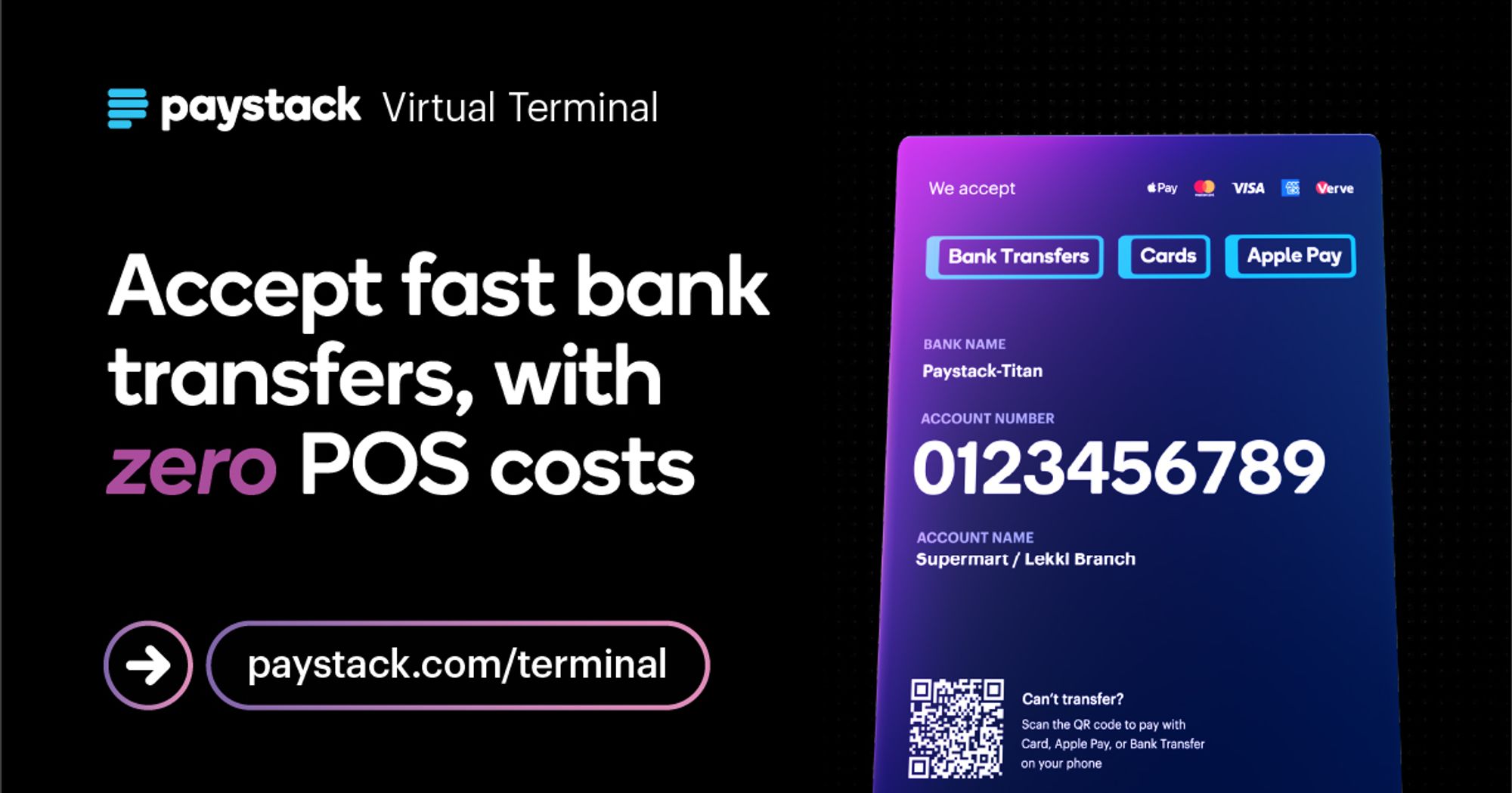- 👨🏿🚀TC Daily
- Posts
- US threatens TikTok’s future
US threatens TikTok’s future
Plus: The DRC is going after Apple for its cobalt use.


Hello TC Daily readers, senior editor Timi here.👋🏾
This will be Mariam Muhammad’s last day writing TC Daily and working for TechCabal 😢. Over the past year, Mariam has co-written 200 editions of TC Daily with me and Faith Omoniyi. She’s also been the brains behind some of the very fun puns we’ve had on the newsletter.
We’ve enjoyed having Mariam on the team, and we look forward to what she’ll do in the future. 🎉
TC Daily will continue to be written by me, Faith Omoniyi who is now joined by Towobola Bamgbose, our new intern reporter!
Apple under scrutiny over mineral sourcing for its tech
In December 2019, a human rights firm, International Rights Advocates, filed a lawsuit against tech giants like Apple, Google, Dell, Microsoft, and Tesla, on behalf of 14 parents and children from the Democratic Republic of Congo (DRC). These families allege the companies profited from child labour in their supply chains. But not much has been said or done since the lawsuit was filed.
Now, the DRC itself has thrown down the gauntlet, and tech giant, Apple is the first to face scrutiny.
What’s the news? Apple is facing heat from the DRC over concerns that it uses conflict minerals in its products. Lawyers for the DRC claim minerals like cobalt and tantalum, vital for smartphone components are smuggled from war-torn regions in the country— where violence and human rights abuses are rampant—to neighbouring Rwanda and then "laundered" into the global supply chain, potentially ending up in our beloved iPhones and Macs.
While the DRC boasts over 60% of the world's cobalt production, the human cost is high. Among the 255,000 Congolese mining cobalt, 40,000 are reportedly children, doing manual labour for less than $2 a day.
What does Apple have to say? Apple maintains its commitment to ethical sourcing, pointing to its annual conflict minerals report and supplier audits. The company insists they have "no reasonable basis" to believe their minerals fund armed groups. However, the DRC disputes this, arguing Apple lacks concrete evidence to back its claims.
Apple is known for its sleek designs and cutting-edge technology. But the company now faces a challenge of demonstrating responsible sourcing practices. How the company handles this legal battle will likely impact consumer trust and their reputation within the tech world.
This accusation begs two critical questions: Say our iPhones are built on the backs of exploited children, would users be willing to boycott Apple products or switch to brands with ethical supply chains? Also, should tech companies be held directly responsible for child labor used in their supply chains, even if they don't directly control the mines?
Read Moniepoint's case study on family-owned businesses

Family-owned businesses are everywhere, shaping our world in ways you might not expect. We've found some insights into how they work, and we'd love to share them with you. Dive in right away here.
Is TikTok banned in the US?
On Wednesday, US President Joe Biden signed legislation that could force TikTok to sell its company if it wishes to still operate in the US or face an outright ban in the country. TikTok’s parent company, China-headquartered ByteDance, now has 270 days to find a buyer if it still wants to operate in the US
What led to this bill? The US fears its national security could be vulnerable to potential threats posed by TikTok, amid worries that China, through its influence over ByteDance, might exploit the platform to undermine America’s interests.
You see, China’s data laws allow the Chinese government to review all user data of Chinese-owned companies. While TikTok has data centres in the US, it still primarily stores data in China and the US government is worried that this could mean TikTok—or ByteDance—is sharing the US citizens’ data with the Chinese government.
Now, all social media platforms collect data. But TikTok is viewed as the most advanced, and most effective at learning about your interests—based on how long you stay with a video and whether you like, forward or comment on it. That enables its algorithm to deliver more items of interest to what it calls the “For You” feed. TikTok has 170 million U.S. users, two-thirds of American teens use TikTok every day, according to a 2022 Pew Research Center survey, with 16% saying they’re on the platform almost constantly.
Data breaches already happened: In December 2022, the chief executives of ByteDance and TikTok acknowledged that ByteDance employees had inappropriately accessed the IP addresses of American users, including journalists critical of the company. This prompted a Justice Department investigation into potential improper surveillance of Americans. Furthermore, the Office of the Director of National Intelligence's annual report on global threats in early 2024 revealed that China had used TikTok to target candidates from both political parties during the US midterm election cycle of 2022.
Lawmakers, citing national security concerns due to TikTok's Chinese ties, swiftly passed a bill through both chambers of Congress in recent days.
What will TikTok do next: Per Bloomberg report TikTok has said it plans to sue over the measure. Chief Executive Officer Shou Chew posted a video response to the new law on Wednesday, painting US lawmakers as a threat to TikTok users’ free speech.
“Make no mistake: This is a ban—a ban on TikTok and a ban on you and your voice,” he said in the video, which was posted to TikTok. “Rest assured we are not going anywhere. We are confident and we will keep fighting for your rights in the courts.”
The issue could take months or even years to settle, during which the app would probably continue to function for U.S. consumers.
What does this mean for users: This could mean that established TikTok content creators will lose their platforms, some of which were global, passive users their “source of joy” businesses that use the platform to gain customers will be affected. According to a BBC report, content creators on the platform say they fear a ban would affect their livelihoods and limit people's access to new information.
What does this mean for their competitors: For Meta in particular, the bill could accomplish what Mark Zuckerberg and his company for years have been unable to do: neutralise the biggest and most stubborn competitor they’ve ever faced. It could push users to Instagram Reels which has struggled to beat TikTok since its 2020 launch.
Other countries have banned TikTok: Several countries have taken actions against TikTok, impacting ByteDance's global operations and the creator economy. India, a significant consumer market, banned the app in June 2020 due to national security concerns. In 2022, the Taliban banned TikTok in Afghanistan, citing its influence on youth, while Somalia also prohibited it, alongside other platforms like Telegram and 1xBet, due to concerns about the spread of harmful content and misinformation. These bans have had repercussions for ByteDance, creators, and related startups in affected regions. This could also lead other countries to become wary and consider similar actions.
In Africa, the Kenyan government recently advised lawmakers against banning TikTok after a citizen petitioned the parliament to ban TikTok for spreading immorality across the country’s budding youth.
Enjoy hassle-free transactions with Fincra

Collect payments without stress from your customers via bank transfer, cards, virtual accounts & mobile money. What’s more? You get to save money on fees when you use Fincra. Start now.
NDPC investigates NIMC for risking private info of 100 million Nigerian citizens
In March 2024, an investigative report revealed a private website, XpressVerify, gained unrestricted access to National Identification Numbers (NINs) and personal details of 100 million Nigerians via the country’s National Identity Management Commission (NIMC) database. XpressVerify allegedly sold this information for profit.
This isn't NIMC's first brush with data security issues. In 2021, a similar incident involving a self-service app exposed user information. While NIMC has a history of often denying these breaches, the Nigerian Data Protection Commission (NDPC) is taking this one seriously.
The NDPC is investigating NIMC for exposing the private information of 100 million citizens, and any negligence found on its part could result in penalties.
Who’s to blame? The investigation points towards a possible "inside job". The NDPC believes a current NIMC agent might have been involved by working with XpressVerify to exploit a system vulnerability.
The NDPC is still finalising its report, and per the Nigeria Data Protection Act, companies found guilty could be fined a maximum of ₦10 million ($7,323) or 2% of their annual gross revenue in the preceding year. While government agencies like NIMC might not face direct fines, individual officials and any involved partners could be prosecuted.
Zoom out: The focus, however, is on preventing future breaches. The NDPC is reviewing data processing practices and security measures at organisations like NIMC. They aim to ensure everyone takes data privacy seriously.
Uber reaches truce with Lagos State
Uber and Lagos have resolved a month-long dispute over data-sharing.
If you’re wondering what the drag was all about, the Lagos government wanted data on real-time trip details, citing a 2020 agreement. In 2020, Lagos established ride-hailing regulations that included granting the government access to user trip and location data. The government has consistently emphasized it wants to be able to identify both drivers and riders and protect users in cases of emergency.
Why Uber refused: Uber, unlike competitors, resisted due to privacy concerns. A source told TechCabal that giving the government this kind of access to data opens users up to surveillance and can open the company up to being sued.
Consequences of Uber’s refusal: The situation escalated with Lagos state impounding some Uber drivers vehicle. Some of the e-hailing platform drivers boycotted the Uber app following the clampdown by the state’s Ministry of Transportation. The e-hailing company then offered drivers on its app a 10% raise in their earnings.
What’s happening now? A compromise was reached with concessions from both sides.
“We have reached a truce, we shifted ground, and Uber too has shifted ground,” Olasunkanmi Ojowuro, the Lagos state director of transport operations. The impounded cars have since been released after 72 hours, based on compassionate grounds”, TechCabal reported.
While data-sharing resolution prevented service disruption, Uber drivers are still very much dissatisfied. Many drivers are unhappy with Uber’s 25% commission rate and the increasing challenges of operating in the country, including long lines for petrol and rising inflation. Drivers also alleged that Uber has lowered fares, further impacting their earnings. The App-Based Transporters of Nigeria (AUATON) also disputes a reported 10% commission increase for Uber drivers, claiming it was a short-lived promotion.
Accept fast in-person payments, at scale

Spin up a sales force with dozens - even hundreds - of Virtual Terminal accounts in seconds, without the headache of managing physical hardware. Learn more →
Funding tracker

This week, South African edtech startup HyperionDev raised $5 million from 23 funders across different countries. Apr 23
Here are the other deals for the week:
- Egyptian fintech Bokra raised $4.6 million pre-seed, with DisrupTech Ventures and SS Capital leading the round and other undisclosed investors participating. Apr 22
- Egypt’s Bluworks, a blue-collar HRtech raised $1 million in pre-seed funding from Khawarizmi Ventures. Camel Ventures, Acasia Ventures, and a pool of angel investors. Apr 22
- Egypt-based podcast production company The Potcast Productions Company (TPP) raised an undisclosed amount in funding through the Shark Tank program. Apr 23
- Egypt-based fintech Waffarha secured an undisclosed seven-figure seed round from Saudi Venture Studio. Apr 23
Before you go, our State Of Tech In Africa Report for Q1 2024 is out. Click this link to download it.
Follow us on Twitter, Instagram, and LinkedIn for more funding announcements. You can also visit DealFlow, our real-time funding tracker.
Attend GITEX Africa

GITEX Africa returns a second time on May 29–31, 2024, to Marrakech, Morocco, discussing ways to accelerate the continent’s digital health revolution. GITEX is the continent's largest all-inclusive tech event renowned for uniting the brightest minds in the technology industry.
The World Wide Web3
Source:

Coin Name | Current Value | Day | Month |
|---|---|---|---|
| $65,116 | + 1.21% | - 6.98% | |
| $3,189 | + 1.43% | - 11.20% | |
$1.00 | + 0.13% | + 0.04% | |
| $616.35 | + 1.77% | + 6.29% |
* Data as of 10:36 PM WAT, April 25, 2024.
- Jumia - Senior Frontend Developer - Lagos, Nigeria
- Moniepoint - Business Operation Manager - Lagos, Nigeria(Hybrid)
- Yassir - Product Design - Egypt, remote
- Ergeon - Senior Full Stack Engineer - Nigeria (Remote)
- Daily Maverick - Project Manager - South Africa (Hybrid)
- M-KOPA - Senior Product Manager - Kigali
There are more jobs on TechCabal’s job board. If you have job opportunities to share, please submit them at bit.ly/tcxjobs.
What else we're reading
For Mariam’s final edition, she’s sharing the top 5 TechCabal articles she thinks everyone should absolutely read! Check them out!
- Will AI take our jobs, or simply create new ones?
- Can streaming platforms solve Nollywood’s distribution problem?
- Exclusive: Backed by $750k grant, Aboyeji and Koschitzky-Kimani are launching the YC of Africa
- From hashtags to ballots: how an army of social media consultants and influencers impacted Nigeria’s 2023 elections
- 2023 wrapped: lessons, fears and hopes from 23 tech leaders
Written by: Mariam Muhammad & Towobola Bamgbose
Edited by: Timi Odueso
Want more of TechCabal? Sign up for our insightful newsletters on the business and economy of tech in Africa.
- The Next Wave: futuristic analysis of the business of tech in Africa.
- Entering Tech: tech career insights and opportunities in your inbox every Wednesday at 3 PM WAT.
- In a Giffy: business decisions powered by data-driven insights and analysis you can trust.
- TC Scoops: breaking news from TechCabal
P:S If you’re often missing TC Daily in your inbox, check your Promotions folder and move any edition of TC Daily from “Promotions” to your “Main” or “Primary” folder and TC Daily will always come to you.



